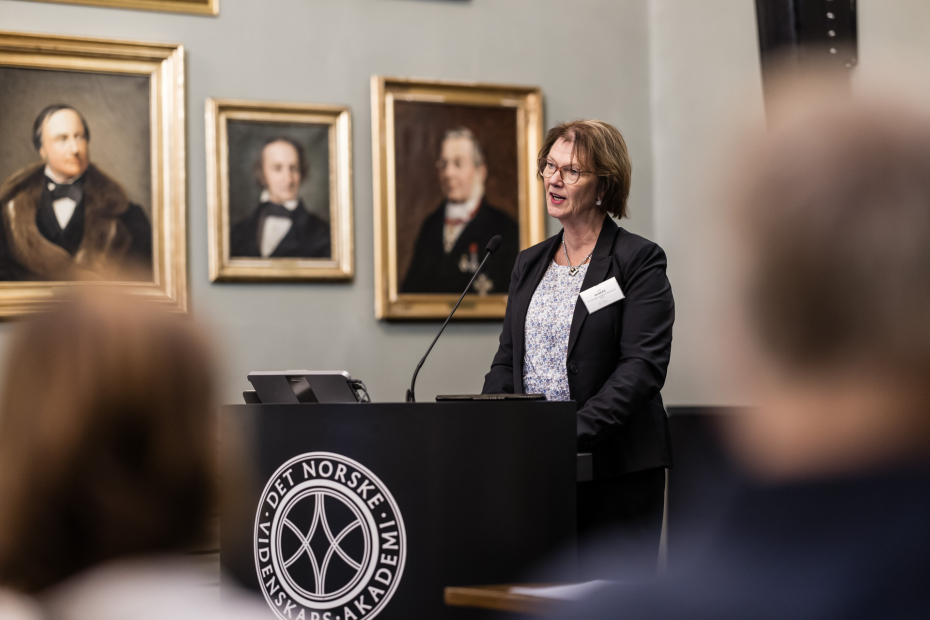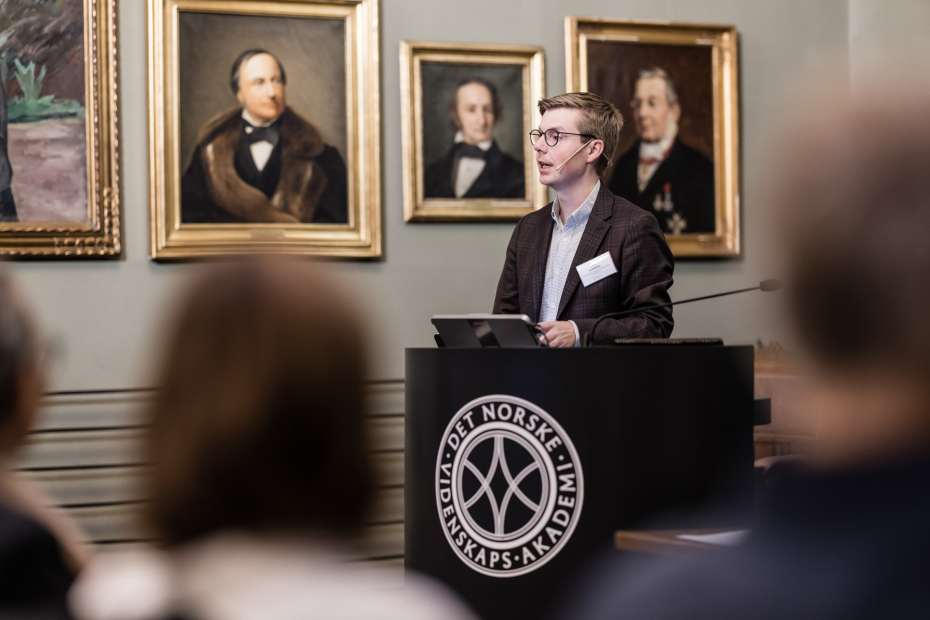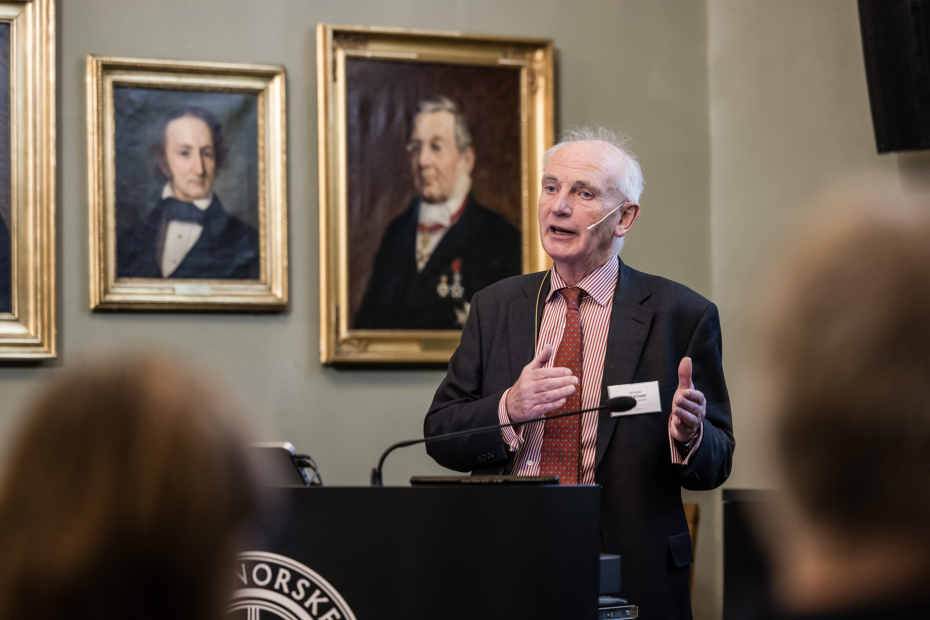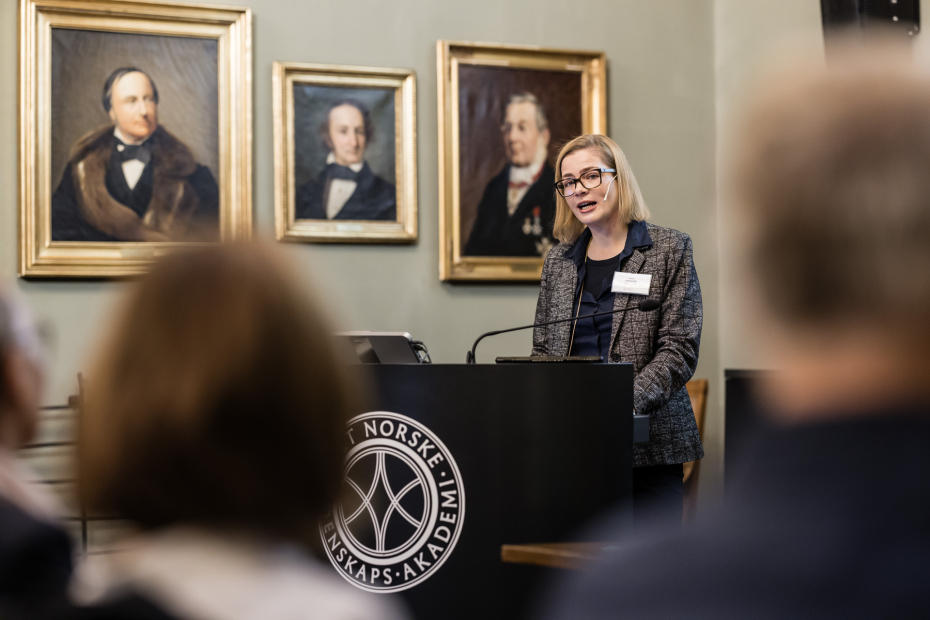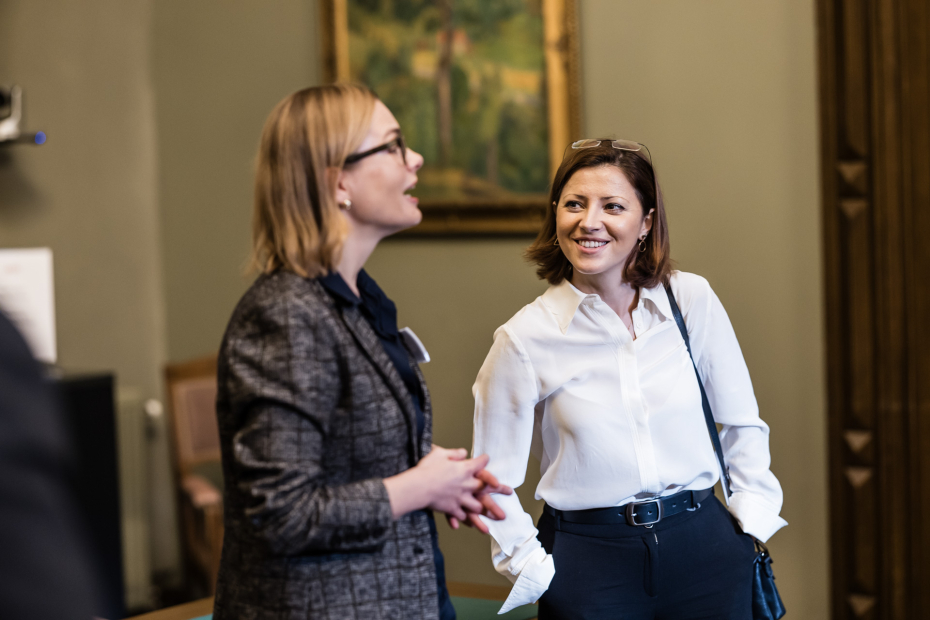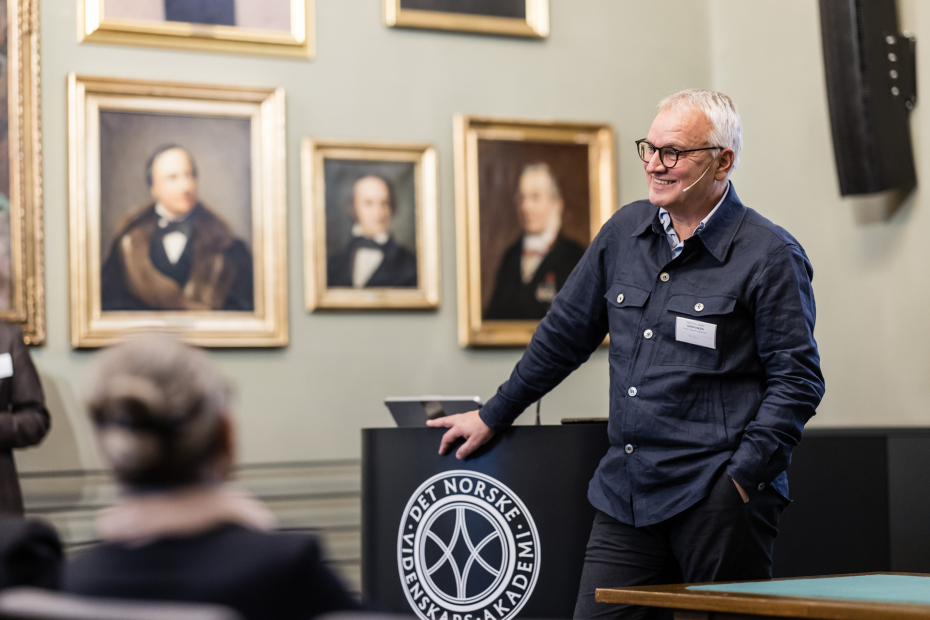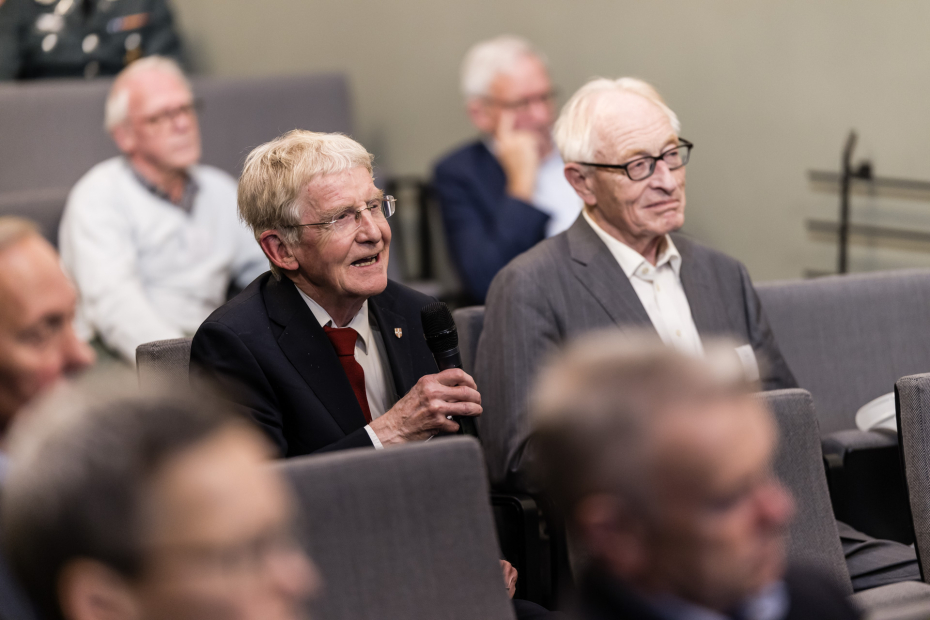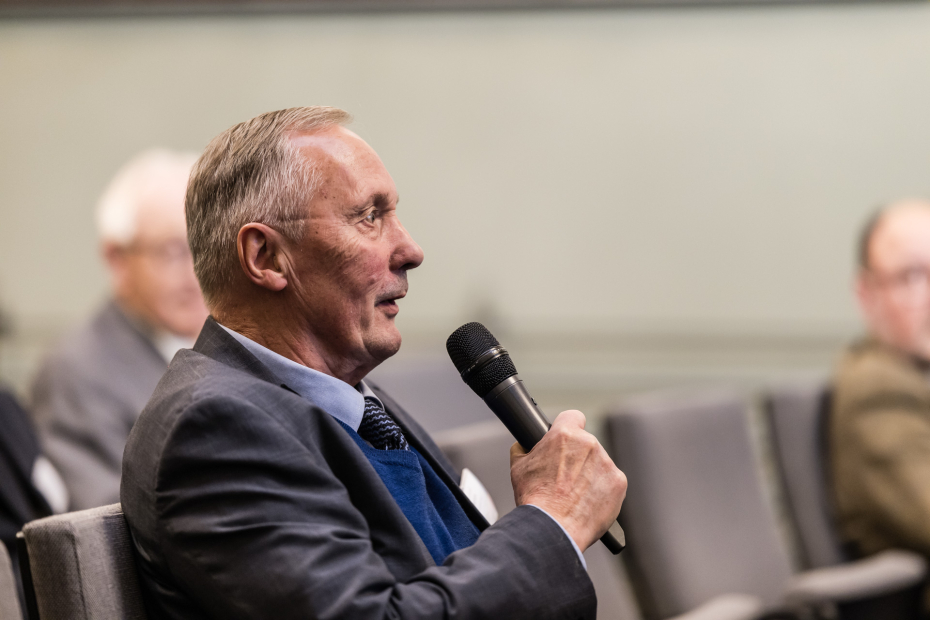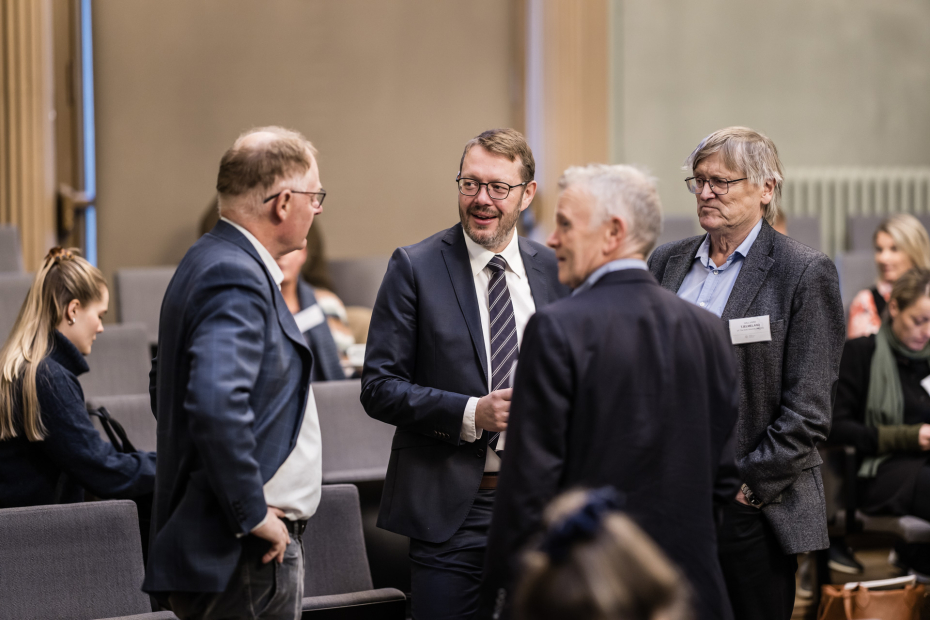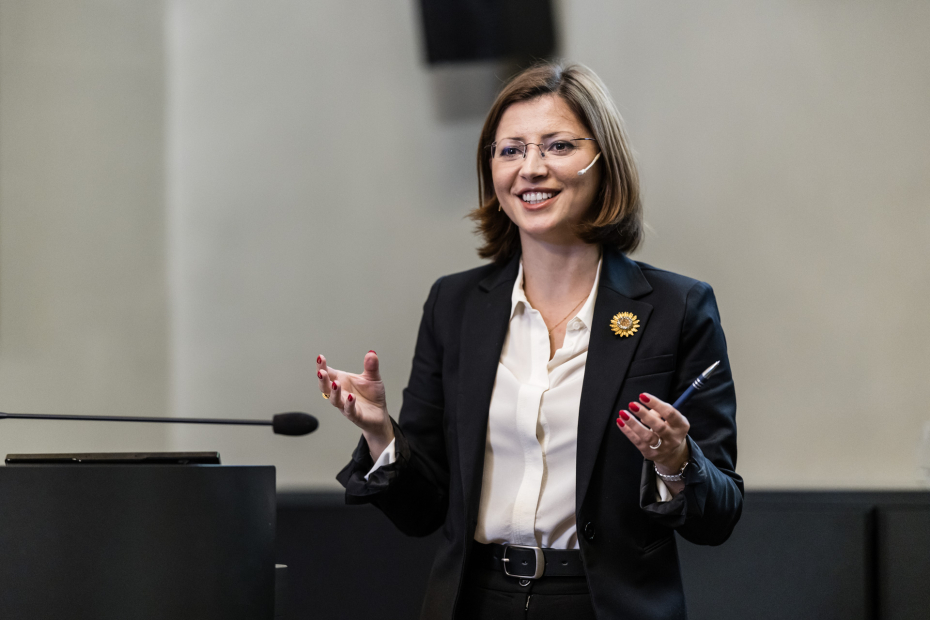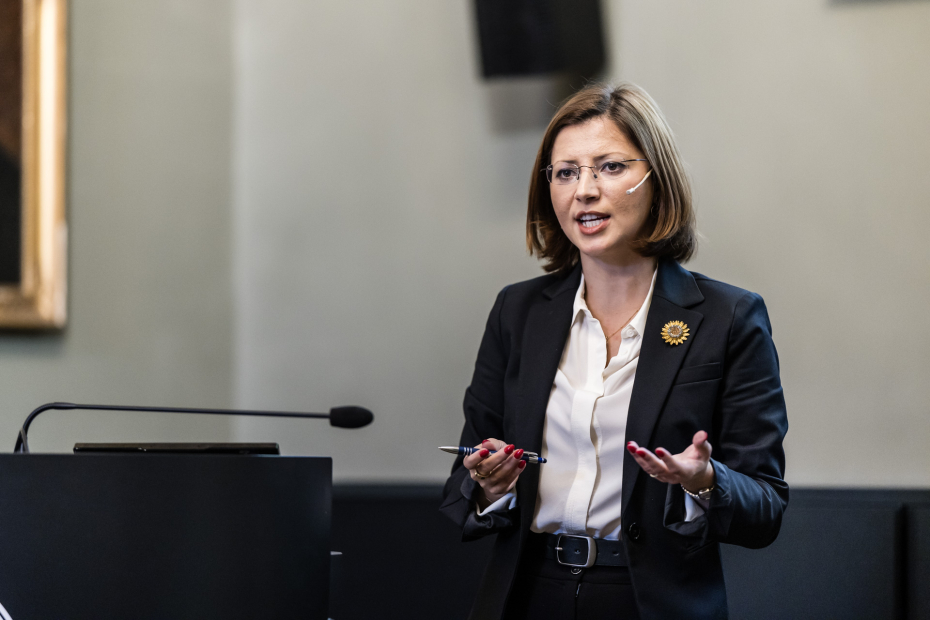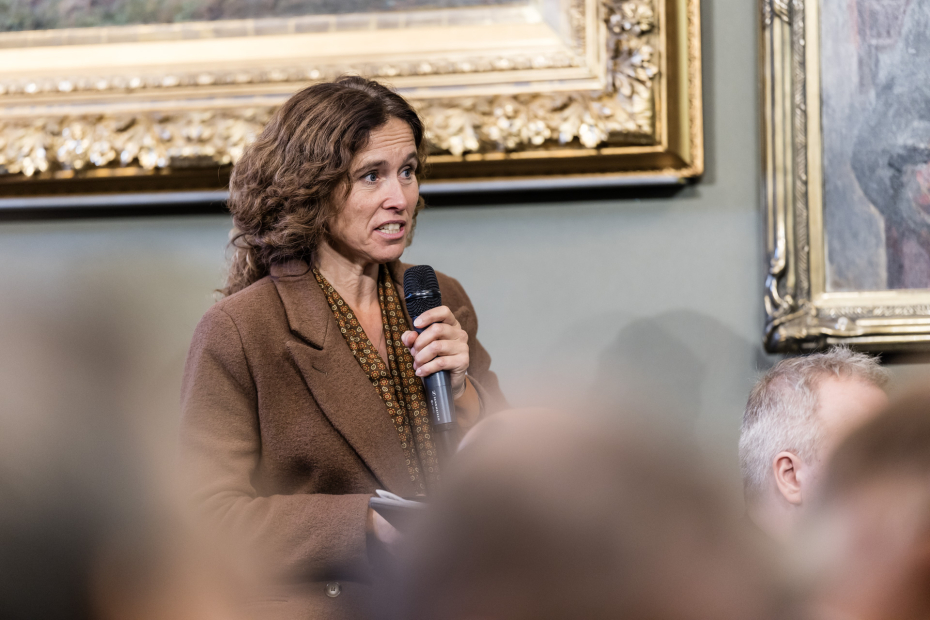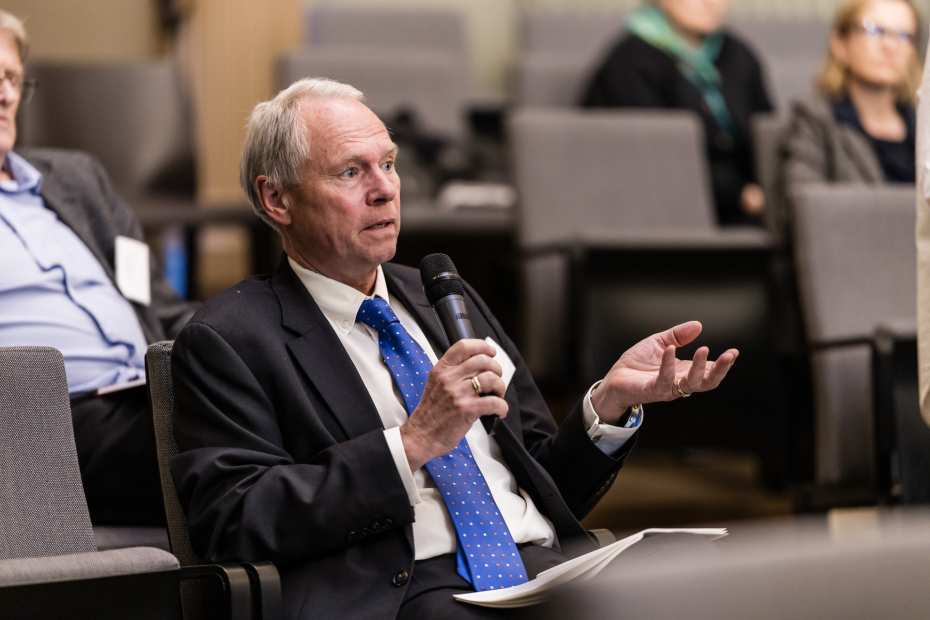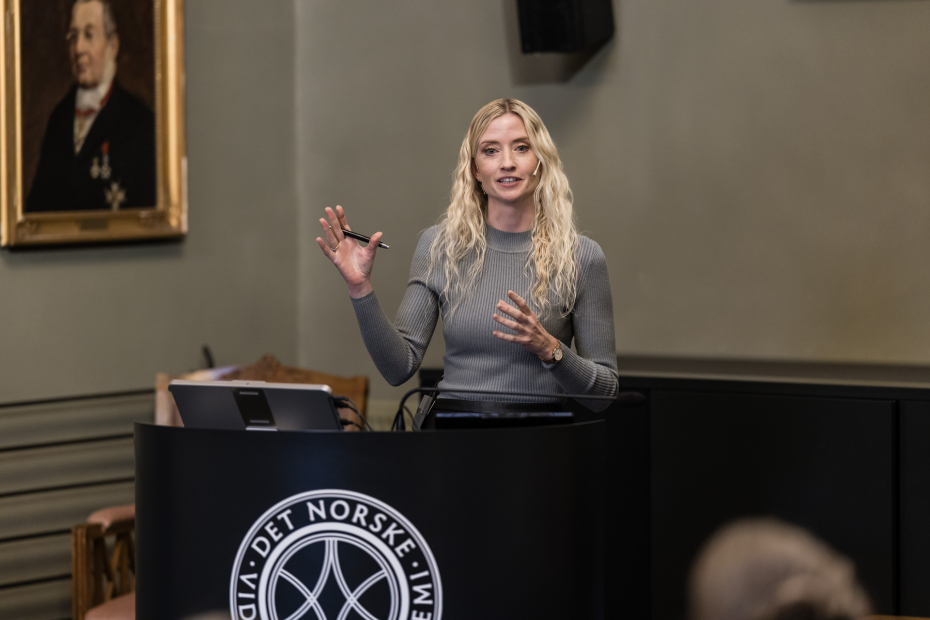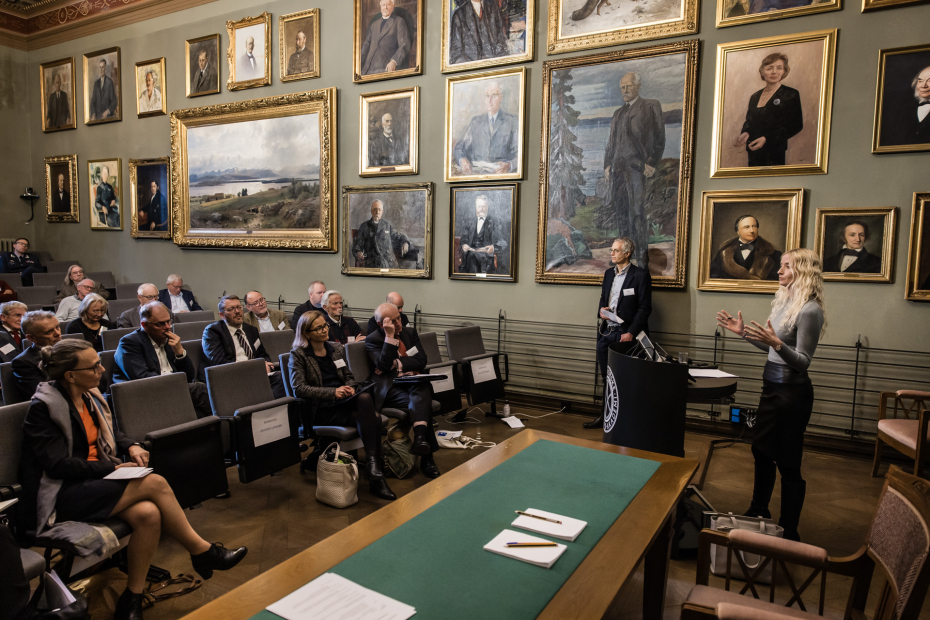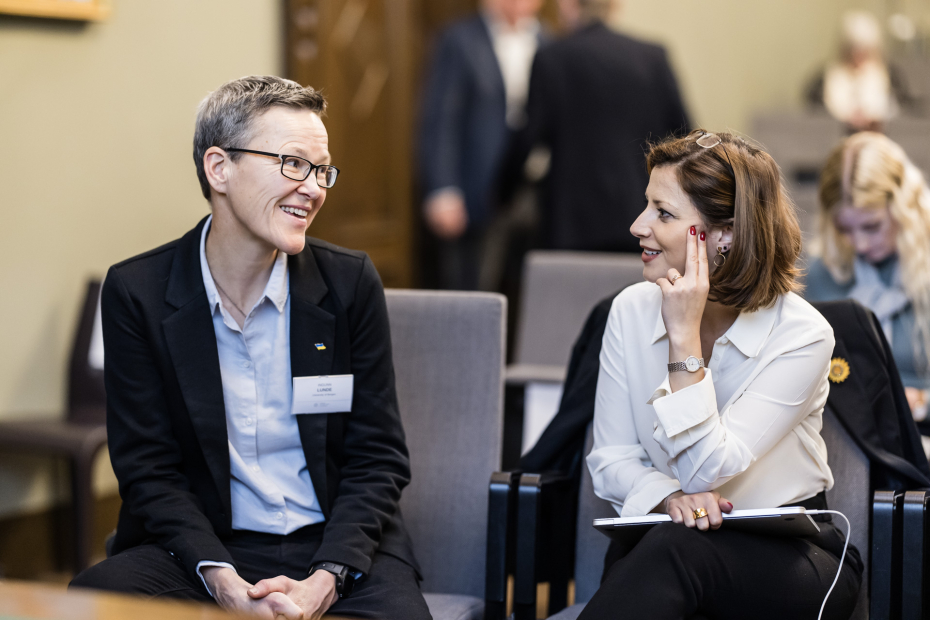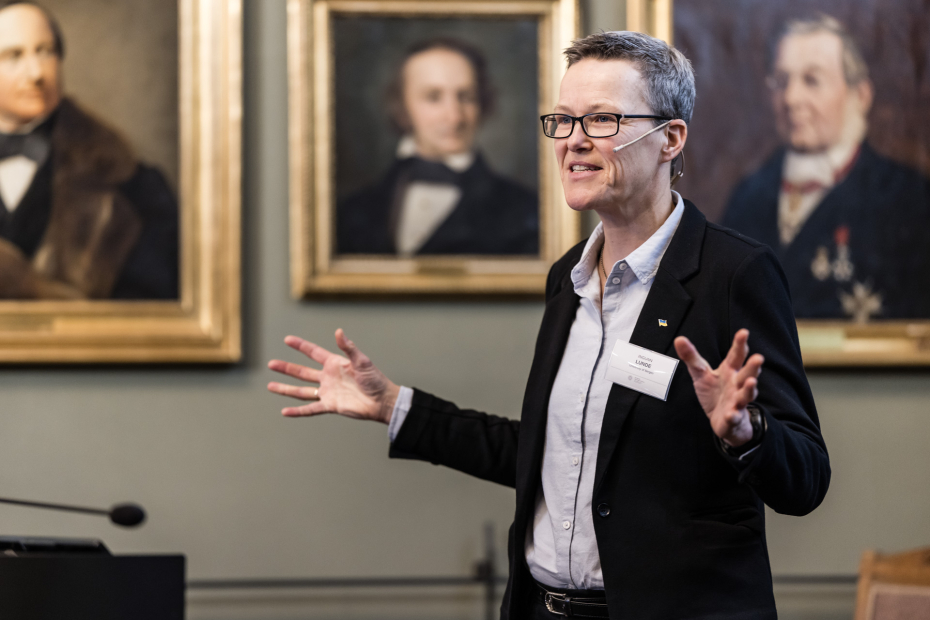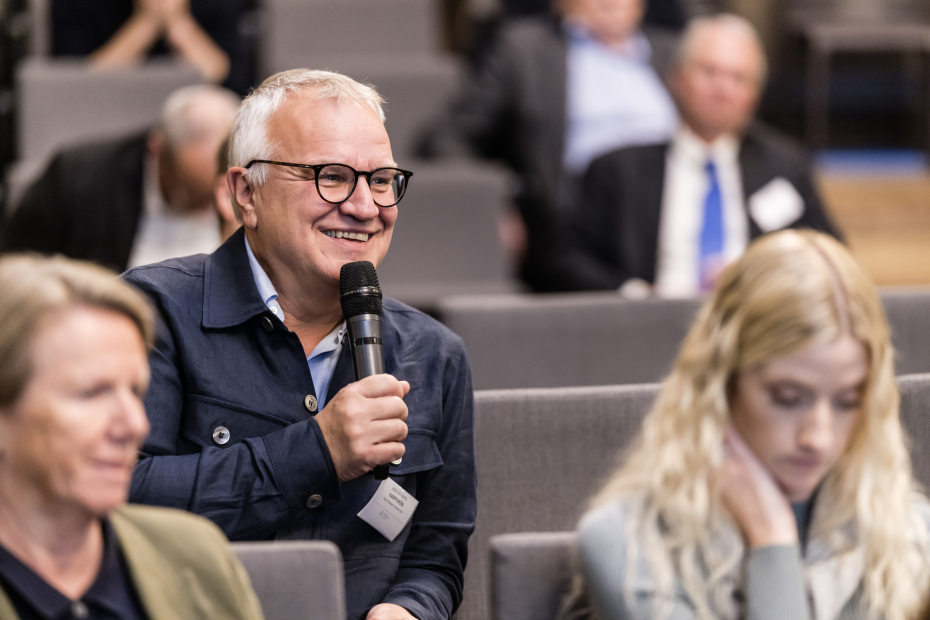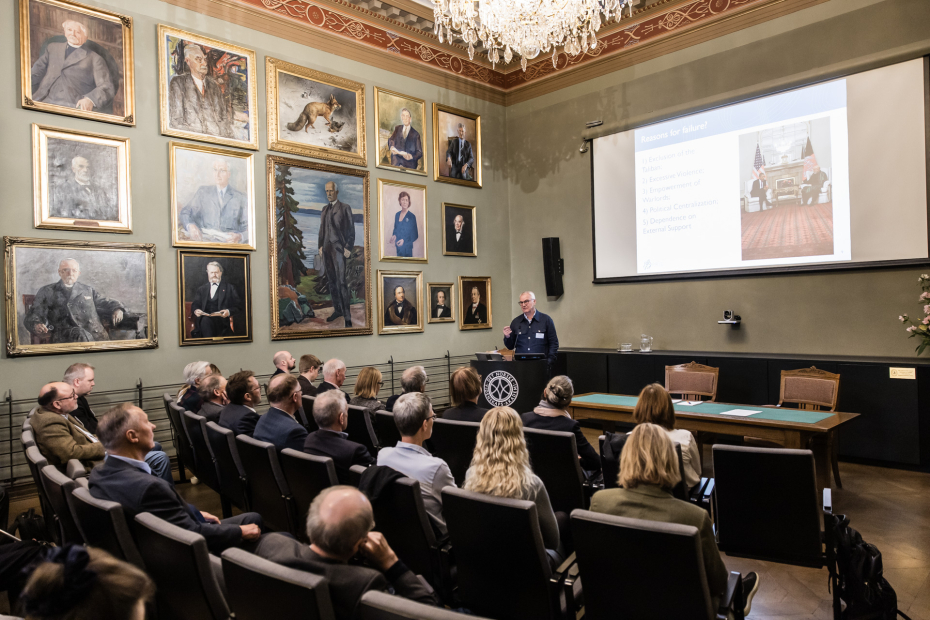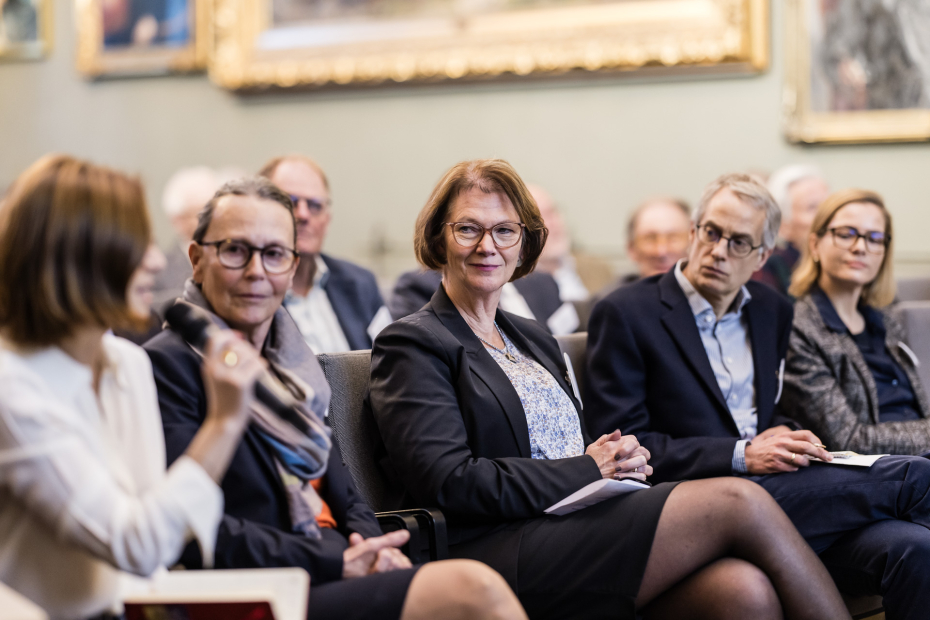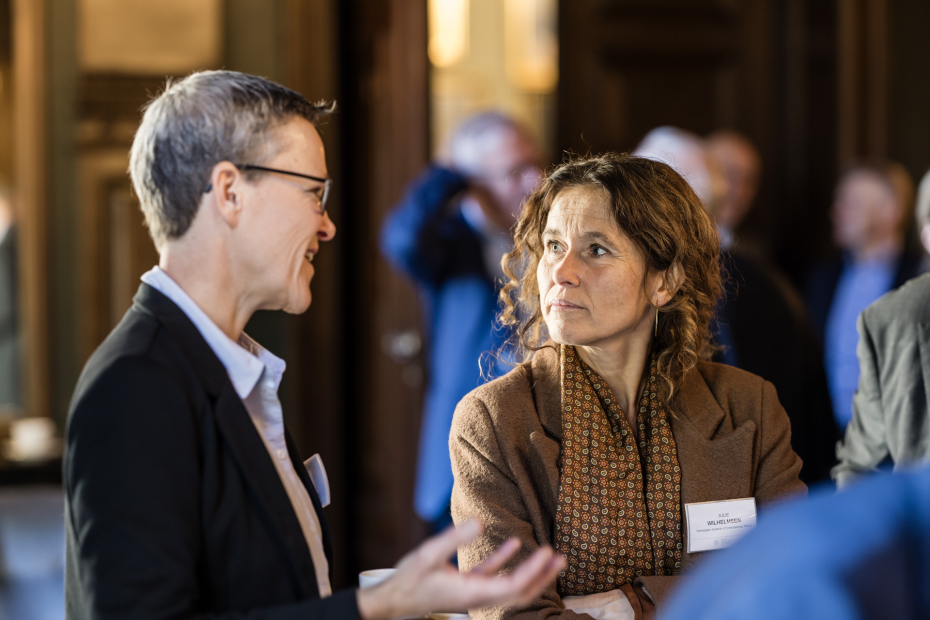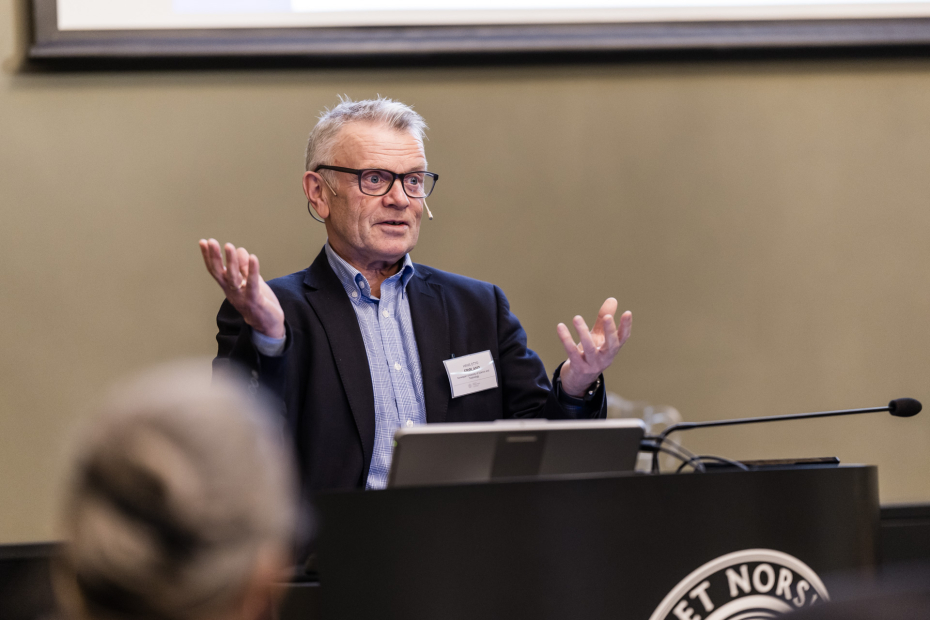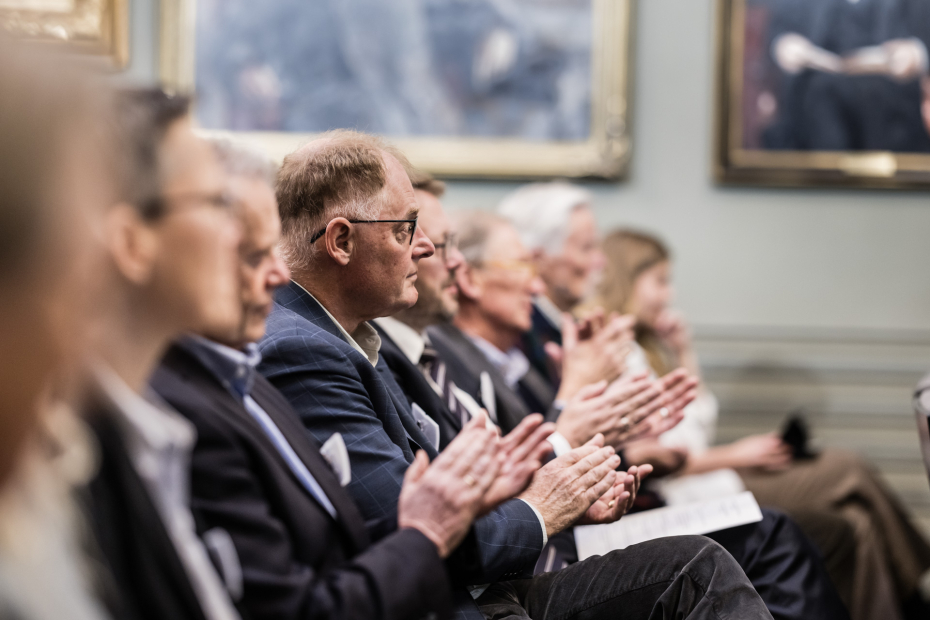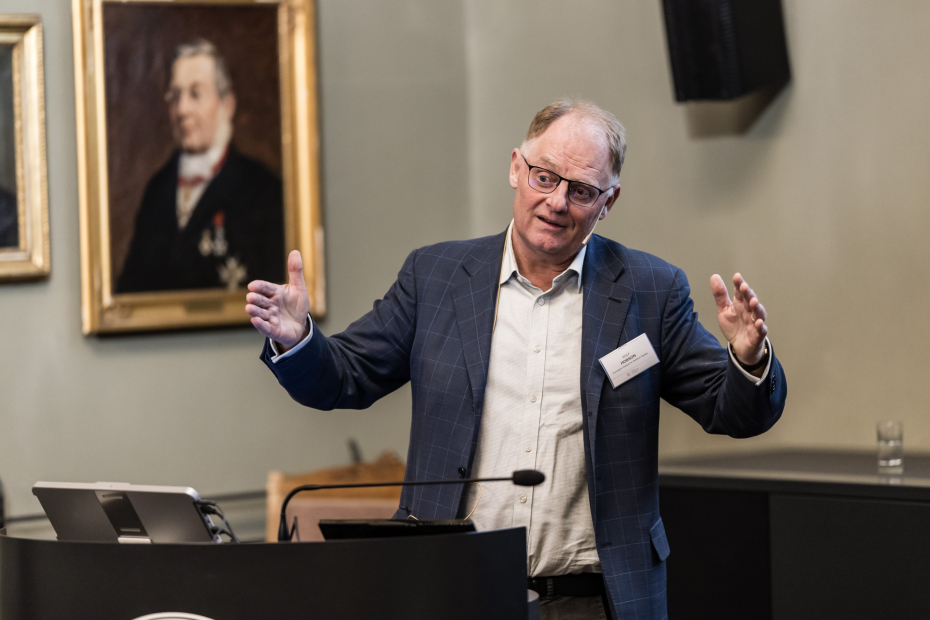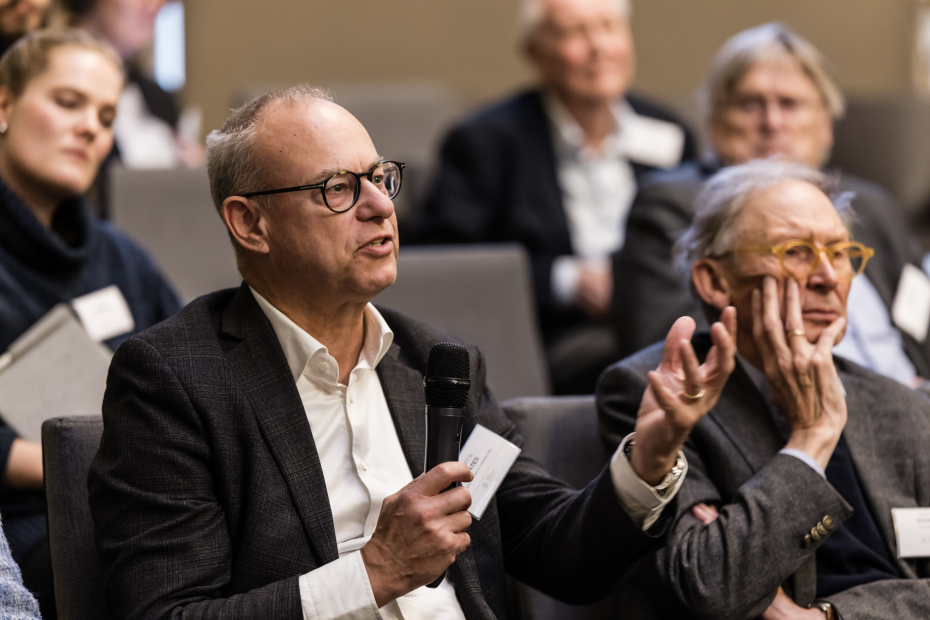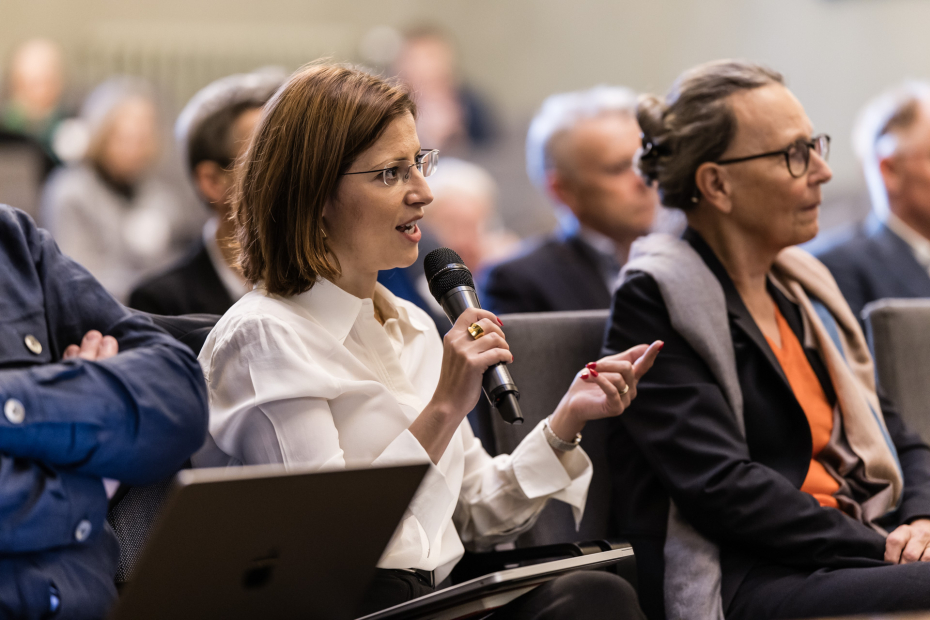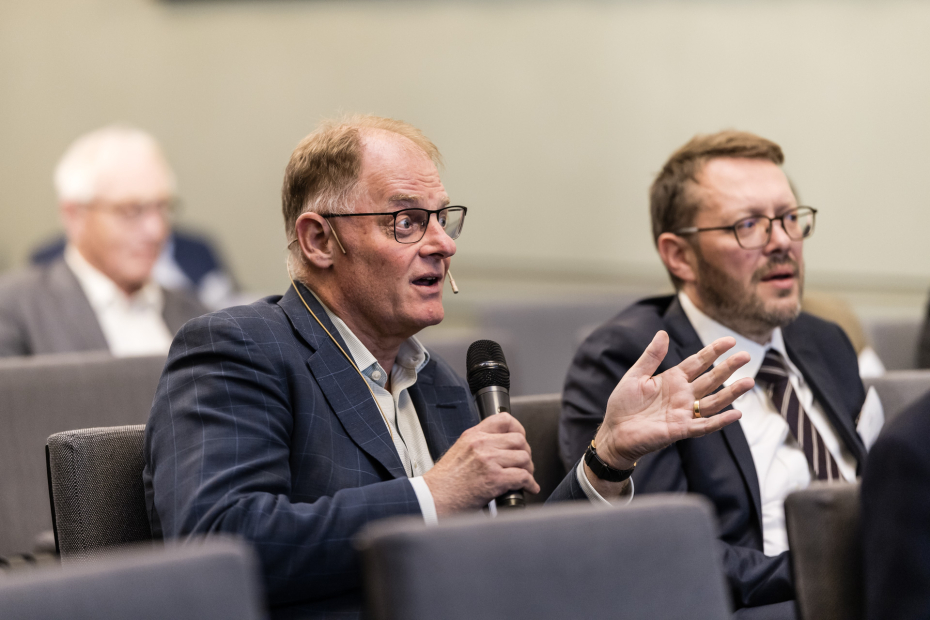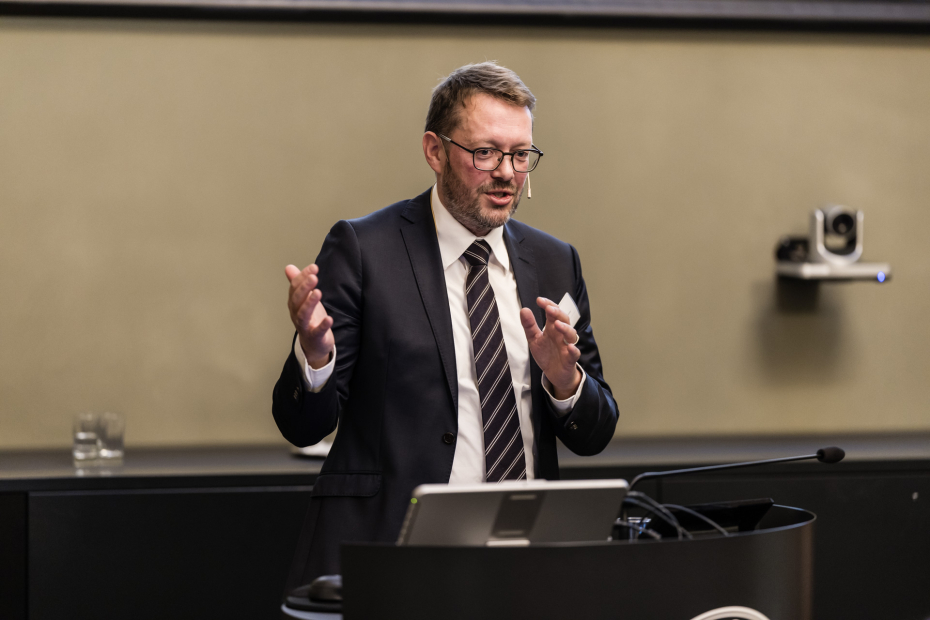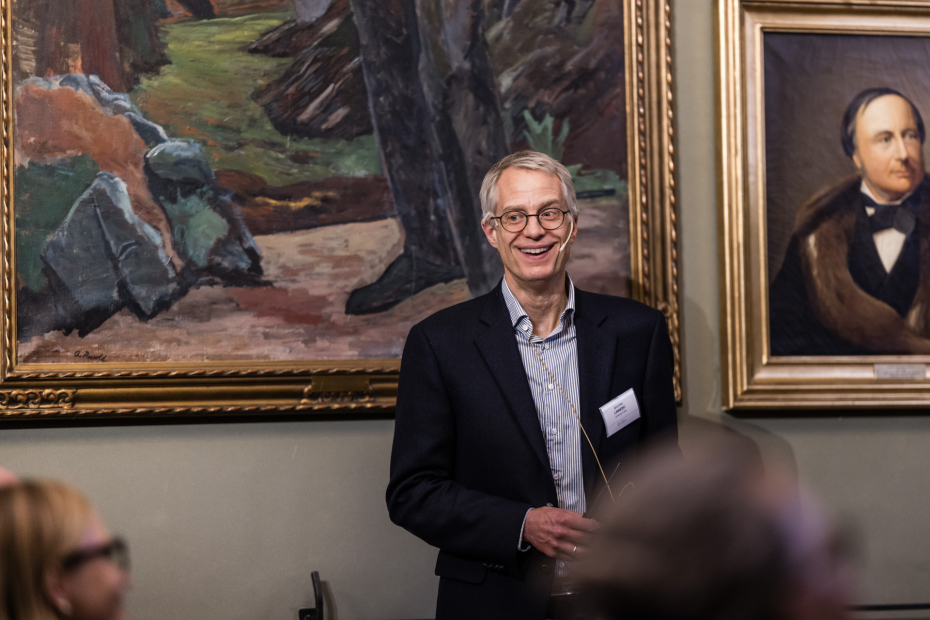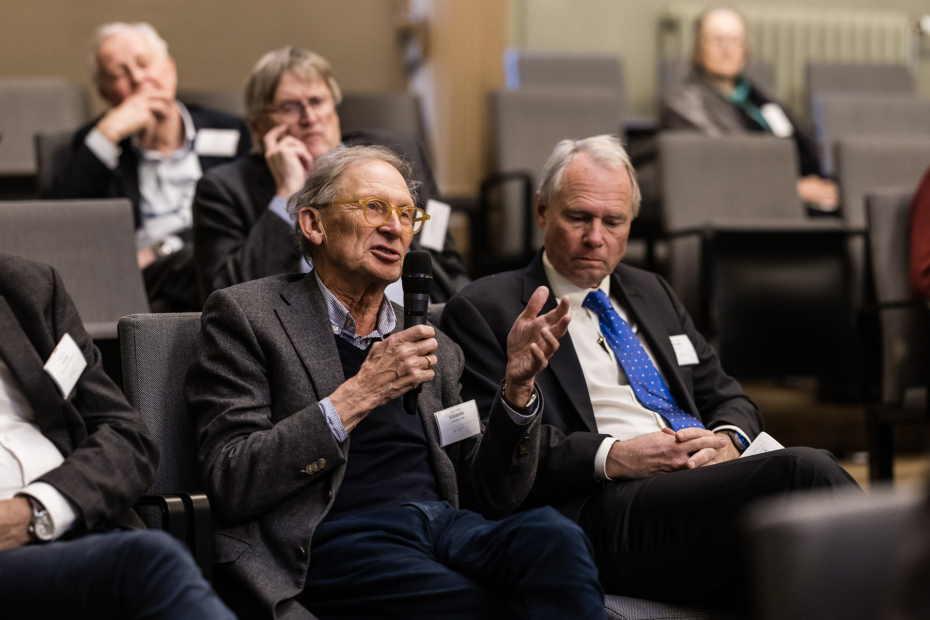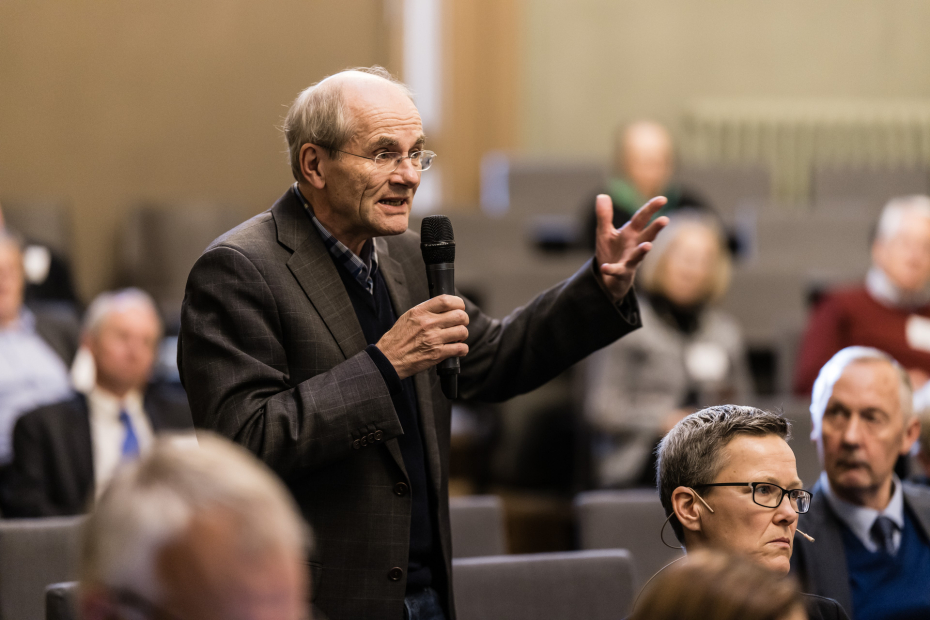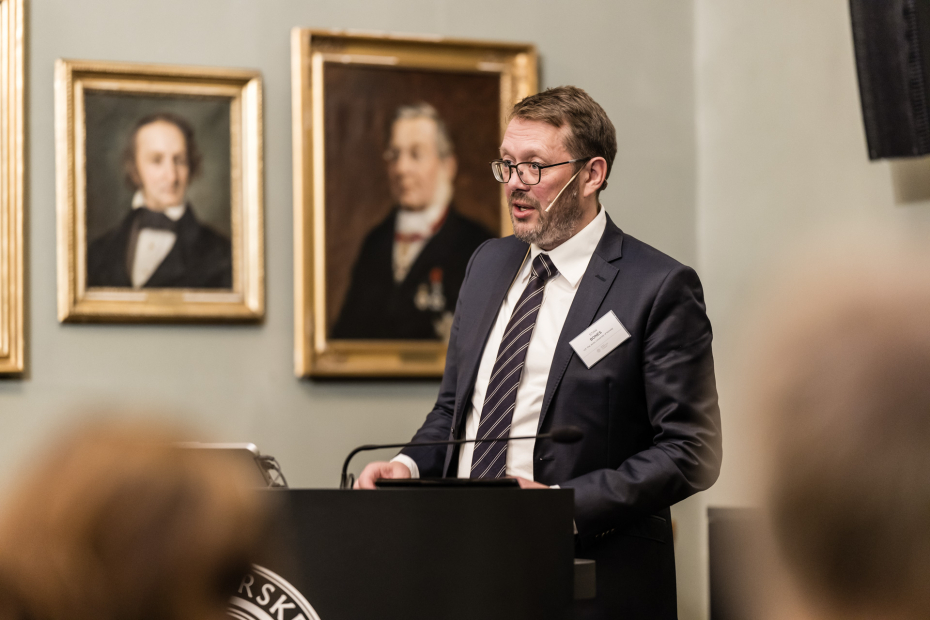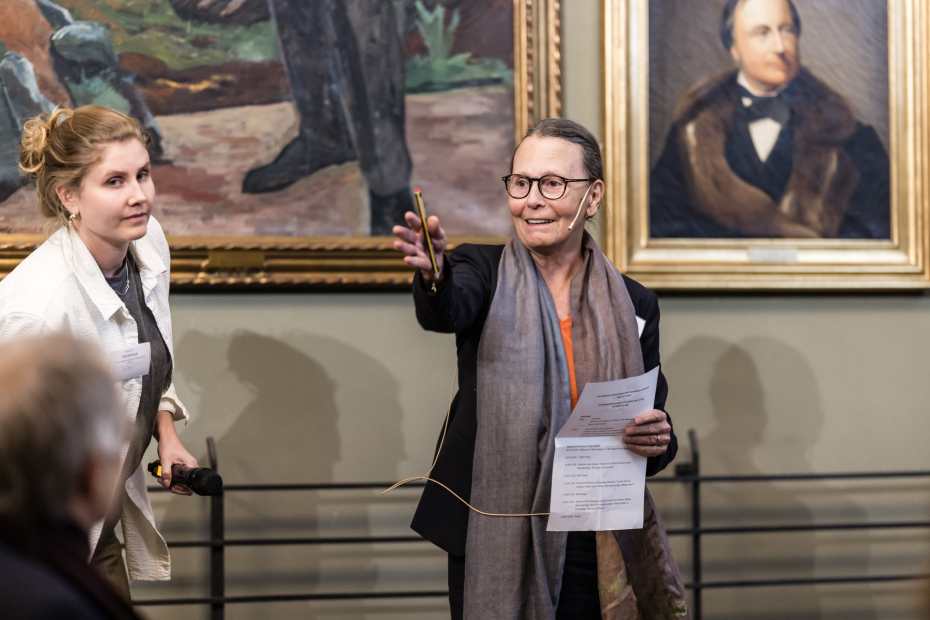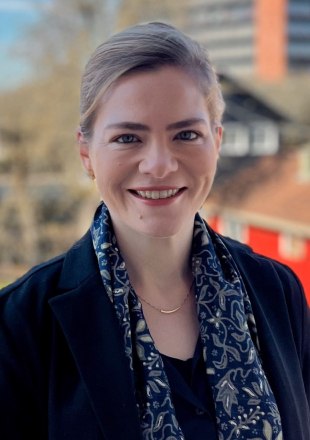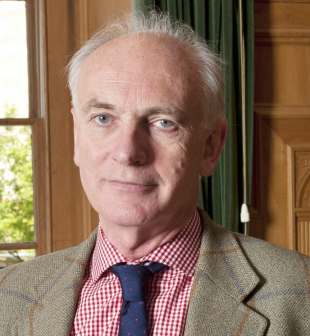
War and Peace
The Biannual Social Sciences and Humanities Symposium: War and Peace
The goal of this symposium is to shed light on a range of issues relating to war and peace, especially in relation to understanding the current situation in Ukraine and how this affects the world at large. The symposium will discuss issues such as the following: how and why wars have emerged; how they have affected people in countries at war; how various countries and people have experienced war differently; how war has changed the relationship between countries and contributed to reconfiguring the world order and international legal systems, economic and material consequences of war (ranging from food to energy); and lastly, how wars are captured in literature and how literature affects our conceptualization of war and peace.
This symposium will gather scholars who will offer their insights into the newest research relating to war and peace in Norway as well as internationally. It will showcase what the broad range of disciplines within the social sciences and humanities can tell us about these issues.
PROGRAM
09:00 Welcome
Professor Lise Øvreås, President of The Norwegian Academy of Science and Letters
09:05 Introduction to the symposium
Professor Terje Lohndal, Vice President of The Norwegian Academy of Science and Letters and class leader of The Humanities and Social Sciences Division
09:15-10:10 Professor Sir Hew Strachan: "Is the nature of war changing?"
10:10-10:30 Coffee break
10:30-11:05 Professor Jana Krause: "Multi-Level Conflict and Multi-Level Peacebuilding: The Case of South Sudan"
11:05-11:10 Brief break
11:10-11:45 Research Professor Kristian Berg Harpviken: "Twenty Years to Replace Taliban with Taliban': What went wrong in Afghanistan?"
11:45-11:50 Brief break
11:50-12:45 Director of the Ukrainian Institute London and historian, Olesya Khromeychuk, Ukrainian Institute London: "From visibility to knowledge: The case of Ukraine"
12:45-13:45 Lunch
13:45-14:40 Professor Helen Frowe: "Justice in War: Lessons from Ukraine"
14:40-15:15 Professor Ingunn Lunde: "Words for War: Reflections on Ukrainian Literature"
15:15-15:40 Break
15:40-16:35 Professor Arne Westad, Department of History, Yale University [via Zoom]: "War and World Order since 1870"
16:35-16:40 Brief break
16:40-17:15 Professor Hans Otto Frøland: "Raw Materials and World War II: Nazi Germany and the Nordic region"
17:15-17:50 Professor Rolf Hobson: "Vulnerable Economies Caught between British Blockade and German Plunder: Norway, Belgium and Soviet Grain 1940-1941"
17:50-17:55 Brief break
17:55-18:30 Professor Stian Bones: "Leading and Living a Total War in Northern Norway"
Abstracts:
Professor Sir Hew Strachan, Oxford & St. Andrews: "Is the nature of war changing?"
In On War, Clausewitz distinguished between war’s character and war’s nature. Its character reflects its context, social and economic as well as political, and changes over time. Its nature is enduring. War, in Clausewitz’s understanding, is both reciprocal and violent. Since 1850 industrialisation and technological change have confronted war with continuous and incremental change. Two recent developments, the employment of unmanned weapons systems and of cyber, seem to some to have the capacity to remove reciprocity (in the case of drones) and violence (if pure cyber war were to occur) from war. So have we reached the point where changes in war’s character have the potential to change its nature?
Professor Jana Krause, Department of Political Science, University of Oslo: "Multi-Level Conflict and Multi-Level Peacebuilding: The Case of South Sudan"
This presentation analyses the complexity of armed conflict in South Sudan through the concept of multi-level conflict. I focus on the interaction of different types of political violence, namely communal conflict and civil war, and discuss implications for violence against civilians. The presentation draws on field research in South Sudan between 2017 and 2023 and dissects variation in geographic spread and intensity of civil war and communal conflict. The conclusions discuss how the analysis of multiple interacting levels of conflict should inform peacebuilding approaches.
Professor Kristian Berg Harpviken, The Peace Research Institute Oslo (PRIO): "Twenty Years to Replace Taliban with Taliban': What went wrong in Afghanistan?"
The Taliban's return to power in Kabul on 15 August 2021, after nearly twenty years of massive international engagement, raises questions about the viability of external military interventions and state-building. This presentation examines six leading explanations for the failure of the international project in Afghanistan; 1) Exclusion of the Taliban; 2) Excessive Violence; 3) Empowerment of Warlords; 4) Political Centralization; 5) Dependence on External Support; 6) Neighboring States as Spoilers. Ultimately, each of these factors has some merit in explaining the outcome. The implications go well beyond Afghanistan, having changed the calculus for international interventions, and contributed to alter the global order.
Director and historian Olesya Khromeychuck, Ukrainian Institute London: "From visibility to knowledge: The case of Ukraine"
Ukraine appeared on the mental map of the world when Russia began its attempt to erase it. What is discovered, however, is not automatically understood. The admiration expressed in many parts of the globe for Ukraine’s courage against the invading army signalled the support of the international community for the Ukrainian cause. It also demonstrated a profound gap in the knowledge of the country’s history. It is this history and the more recent past that can explain how this extraordinary bravery was possible today. In this talk, I will explore why Ukraine remained terra incognita to the rest of the world until its very existence was threatened by Russia. I will discuss why the newly-gained visibility does not equate with an understanding of the country. I will also interrogate the notion of credibility of voice and why the knowers are so frequently mistrusted with their experience. The talk will offer suggestions for how the gap between visibility and knowledge could be bridged.
Professor Helen Frowe, Department of Philosophy, Stockholm University and Director of Stockholm Centre for the Ethics of War and Peace: "Justice in War: Lessons from Ukraine"
The last twenty years have seen a significant shift in philosophical work on the ethics of war. Many – perhaps a majority – of writers now reject what we can call the ‘traditional’ account of the ethics of war, which draws sharp distinctions between states and citizens, between soldiers and civilians, between the justness of the war and the permissibility of fighting it, and, more generally, between the ethics of war and the ethics of ordinary life. And yet the traditional view continues to dominate legal, political and public discourse about war. In this talk, I suggest that the war in Ukraine throws the implausibility of this view into especially stark relief. Killing Ukrainian soldiers is as bad as killing Ukrainian civilians. Russian soldiers act wrongly in killing Ukrainian soldiers, even if they are following orders and those orders are legal. We do not need a special ‘ethics of war’ to reveal these truths. They are made apparent by the lights of our ordinary moral thinking.
Professor Ingunn Lunde, Department of Foreign Languages, University of Bergen: "Words for War: Reflections on Ukrainian Literature"
The traumas of war experiences defy words. Yet, Ukrainian poets and prose writers have responded abundantly to Russia’s aggression from 2014 onwards. Where bureaucratic language can list numbers of casualties, the language of literature, can, perhaps, start to give expression to the costs of survival. In this talk, I discuss the role of literature in the context of the even broader question of ‘language in the time of war’. I look at the multiple ways in which literary art, and more specifically, the language of literature, can respond to the condition of war, a war that quite clearly is also an attack on Ukrainian culture.
Professor Odd Arne Westad, Department of History, Yale University: "War and World Order since 1870".
Historians and social scientists have studied how wars affect world orders for a very long time. But, even so, much of our knowledge is based on specific or, at best, comparative studies of individual wars and conflicts. This talk will attempt to take a broader view. Are there aspects of world orders that are constituted by matters integral to how wars are fought, not just ideologically and politically, but in terms of mobilization, logistics, technologies, and strategy? And, if so, what can that tell us about the character of war and world order in the 21st century?
Professor Hans Otto Frøland, Department of Modern History and Society, Norwegian University of Science and Technology: "Raw Materials and World War II: Nazi Germany and the Nordic region"
The significance of natural resources for the coming, development and outcome of WWII is well established. Based on research on the nexus between war and natural resources my talk consists of two interlinked parts. The first adresses how Nazi Germany as a ‘have-not’ of natural resources took account of the lessons from WWI. It suggests that Germany was better prepared for a long resource war than widely assumed. The last adresses Germany’s resource exploitation of the Nordic region during WW II. It suggests that the region was less exploited in economic terms than widely assumed.
Professor Rolf Hobson, Norwegian Institute for Defence Studies, The Norwegian Armed Forces and Department of Archaeology, History, Cultural Studies and Religion, University of Bergen: "Vulnerable Economies Caught between British Blockade and German Plunder: Norway, Belgium and Soviet Grain 1940-1941"
Norway and Belgium were the two countries in German-occupied Europe that were most exposed to the blockade of the continent that Churchill proclaimed in August 1940. They were dependent on overseas markets to sell the goods and services that paid for their imports of grain and feed. Attempts to secure supplies from the US proved fruitless. The only potential grain surplus on the continent was in the Soviet Union. In the spring of 1941 both countries concluded barter agreements in Moscow. However, after Barbarossa they became dependent on German grain supplies which, in turn, were plundered from Eastern Europe.
Professor Stian Bones, Department of Archaeology, History, Religious Studies and Technology, University of Tromsø – The Arctic University of Norway: "Leading and Living a Total War in Northern Norway"
The war experience in Northern Norway differed in some areas from the experience of war elsewhere in Norway. To a large degree, this was the result of the strong German presence in the Northern Theatre of War, which formed the context for people's lives for five years. How did the German occupiers treat different groups of peoples in Northern Norway? How can one describe the relationship between collaboration and resistance among the civilian population? Why was the end of the war so brutal? These are questions addressed in the lecture by Professor Stian Bones. The lecture is based on two research projects: "In a World of Total War: Norway 1939–1945" and "The Second World War in the High North".
Biographies
Professor Sir Hew Strachan FBA, FRSE
Hew Strachan, FBA, FRSE, Hon. D. Univ (Paisley) has been Wardlaw Professor of International Relations at the University of St Andrews since 2015. He is a Life Fellow of Corpus Christi College, Cambridge, where he taught from 1975 to 1992, before becoming Professor of Modern History at Glasgow University from 1992 to December 2001. He was Chichele Professor of the History of War at the University of Oxford and a Fellow of All Souls College 2002-15 (where he is now an Emeritus Fellow), and Director of the Oxford Programme on the Changing Character of War 2003-2012. He has been a Visiting Professor at the Royal Norwegian Airforce Academy for over twenty years. He was a Commonwealth War Graves Commissioner 2006-18 and a Trustee of the Imperial War Museum 2010-17, and served on the national committees for the centenary of the First World War of the United Kingdom, Scotland and France. In 2010 he chaired a task force on the implementation of the Armed Forces Covenant for the Prime Minister. In 2011 he was the inaugural Humanitas Visiting Professor in War Studies at the University of Cambridge and became a specialist adviser to the Joint Parliamentary Committee on the National Security Strategy. He is a Captain in the King’s Bodyguard for Scotland (Royal Company of Archers). In December 2012, Foreign Policy magazine included him in its list of top global thinkers for the year. He was knighted in the 2013 New Year’s Honours, and was appointed Lord Lieutenant of Tweeddale in 2014. In 2016 he was awarded the Pritzker Prize for Lifetime Achievement for Military Writing. His publications include The Politics of the British Army (1997); The First World War: To Arms (2001); Clausewitz’s On War: a Biography (2007); The First World War: a New Illustrated History (2003); and The Direction of War (2013).
Jana Krause is Professor in the Department of Political Science at the University of Oslo and Director of the MA program in Peace and Conflict Studies (PECOS). Her research focuses on civilian agency and protection in communal conflicts and civil wars, peace processes and local peacebuilding, and the gender dimensions of peacebuilding. She has conducted field research on these issues in South Sudan, Nigeria, Kenya, Myanmar, and Indonesia. Krause is author of ‘Resilient Communities: Non-Violence and Civilian Agency in Communal War’ (Cambridge University Press 2018), and co-editor of ‘Civilian Protective Agency in Violent Settings’ (Oxford University Press 2023). She currently directs the ERC Starting Grant Project ‘ResilienceBuilding: Social Resilience, Gendered Dynamics, and Local Peace in Protracted Conflicts’. Krause holds a PhD from the Graduate Institute of International and Development Studies in Geneva and was previously Associate Professor at the University of Amsterdam.
Dr. Kristian Berg Harpviken is a sociologist and a Research Professor at the Peace Research Institute Oslo (PRIO). Harpviken's research interests include peace processes, peacebuilding, the dynamics of civil war, migration and transnational communities, and methodology in difficult contexts. Harpviken has been a visiting researcher at the Chicago University and Georgetown University, and he is an associate at the University of York, the Doha Institute for Graduate Studies and the Institute for National Security Studies Sri Lanka. Harpviken is the director of the PRIO Middle East Centre, but is also known for his competence on Afghanistan and the surrounding region, and he has also worked in Angola, Bosnia-Hercegovina, Mozambique, and Pakistan. Harpviken is a frequently used media commentator, and lectures regularly to both academic and popular audiences. He is author of Social Networks and Migration in Afghanistan (Palgrave Macmillan, 2009), and (with Shahrbanou Tadjbakhsh), A Rock Between Hard Places: Afghanistan as an Arena for Regional Insecurity (Hurst/Oxford University Press, 2016).
Dr Olesya Khromeychuk is a historian and writer. She has taught the history of East-Central Europe at the University of Cambridge, University College London, the University of East Anglia and King’s College London, and has written for The New York Times, The New York Review of Books, Der Spiegel, the Los Angeles Review of Books, Prospect and The New Statesman. Khromeychuk is the author of The Death of a Soldier Told by His Sister (2022) and “Undetermined" Ukrainians. Post-War Narratives of the Waffen SS "Galicia" Division (2013). She is currently the Director of the Ukrainian Institute London.
Helen Frowe is Professor of Practical Philosophy and Knut and Alice Wallenberg Scholar at Stockholm University, where she directs the Stockholm Centre for the Ethics of War and Peace. She has held visiting fellowships at Rutgers, Harvard, Australian National University, York University, Canada, the Stellenbosch Institute for Advanced Studies and the University of Pennsylvania. She is the author of Stones and Lives: The Ethics of Protecting Heritage in War (in press, OUP), Defensive Killing (OUP, 2014) and The Ethics of War and Peace: An Introduction (Routledge, 2011; 2015; 2022) and was the recipient of the 2019 Marc Sanders Prize in Political Philosophy.
Ingunn Lunde is Professor of Russian at the University of Bergen. Her research interests include Russian sociocultural linguistics, East Slavic medieval culture, Russian literature of the 19th to 21st centuries, Russian memory politics, and contemporary Ukrainian literature. Lunde is the author of Verbal Celebrations: Kirill of Turov’s Homiletic Rhetoric and its Byzantine Sources (Harrassowitz 2001), Language on Display: Writers, Fiction and Linguistic Culture in Post-Soviet Russia (Edinburgh UP 2018) and Fragmenter av fortid: Historiens rolle i russisk samtidslitteratur (Dreyer 2019) and editor/co-editor of twelve books, among them (with Michael S. Gorham and Martin Paulsen) Digital Russia: The Language, Culture and Politics of New Media Communication (Routledge 2014). She was managing editor of Scando-Slavica (2016–2022), co-editor of Poljarnyj vestnik (2013–2022) and is founder and editor-in-chief of the book series Slavica Bergensia (1999–present). Lunde is actively involved in outreach activities for Norwegian audiences, ranging from public talks and feature articles to podcasts, panels, media appearances and interviews, at venues such as theatres, public libraries, concert halls, houses of literature, etc. She is responsible for “Russian literature” articles in the Great Norwegian Encyclopaedia.
Odd Arne Westad is a scholar of modern international and global history, with a specialization in the history of eastern Asia since the 18th century. He studied history, philosophy, and modern languages at the University of Oslo before doing a graduate degree in US/international history at the University of North Carolina at Chapel Hill, where he primarily worked with Michael H. Hunt. Westad has published sixteen books, most of which deal with twentieth century Asian and global history. In the first part of his career, Westad was mainly preoccupied with the history of the Cold War, China-Russia relations, and the history of the Chinese civil war and the Chinese Communist Party. Since the mid-2000s, Westad has been concerned with more general aspects of post-colonial and global history, as well as the modern history of China. Today Westad is mainly interested in researching histories of empire and imperialism, first and foremost in Asia, but also world-wide. He is also trying to figure out how China’s late twentieth century economic reforms came into being and how their results changed the global economy. Westad joined the faculty at Yale after teaching at the London School of Economics, where he was School Professor of International History, and at Harvard University, where he was the S.T. Lee Professor of US-Asia Relations. He is a fellow of the British Academy and of several other national academies.
Hans Otto Frøland is professor of contemporary European history at Norwegian University of Science and Technology (NTNU). He obtained his dr. philos. degree from the University of Trondheim in 1993. He has worked continuously with historical topics pertaining to political economy, and published on the history of Nordic cooperation, European integration, the German problem in European history, and the globalisation of Norway’s aluminium industry. During the last decade, his research publications have mainly dealt with Nazi Germany’s Nordic interventions during WWII and, more recently, how the global political economy of natural resources have influenced the modern world. He has been leading several research projects. His latest publications are: Producer Cartel, International Commodity Agreement, and the Role of the US Government Copper Stockpile, in R. Declercq et al. (eds.), Born with a Copper Spoon: A Global History of Copper, University og British Columbia Press 2022, and: Besatzungswirtschaft in Nordeuropa: Norwegen und Dänemark, in Marcel Boldorf, Jonas Scherner (Hrsg.), Handbuch Wirtschaft im Nationalsozialismus, DeGruyter Oldenburg 2023.
Rolf Hobson is an historian at the Norwegian Institute of Defence Studies in Oslo and the University of Bergen. He has specialized in German military history, European political history and recently participated in the five-year research project on Norway in the Second World War hosted by the University of Tromsø. He is currently researching a study of the food supply problems of Norway and Belgium during the German occupation.
Stian Bones is professor of modern history at UiT The Arctic University of Norway. He is also affiliated with The Narvik War and Peace Centre as senior researcher. He has written extensively on political, security and diplomatic topics related to Norway and the European High North during the Second World War and the Cold War. Among his latest publications is The Struggle for Freedom. The Second World War in the High North published in 2022, of which he is the editor. The subject of his doctoral thesis (2007) was North Norway during the Cold War. Bones has also worked with the history of Norway’s relations to the United States, Norwegian-Russian relations, and the history of Norway's polar politics.
War and Peace - symposium i bilder
